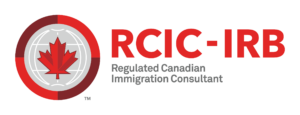Kelowna Wildfire Smoke: Safety Tips for Newcomers

Kelowna Wildfire Smoke: Safety Tips for Newcomers
The Okanagan Valley boasts beautiful summers, but recent years have brought a recurring challenge: wildfire smoke. For those new to the area, especially immigrants unfamiliar with these conditions, understanding how to protect yourself and your family is crucial. This guide provides essential information and resources to help you navigate smoky conditions safely.
Consider linking to information about preparing for emergencies in Kelowna.
Understanding Wildfire Smoke and Your Health
Wildfire smoke is a complex mixture of gases and fine particles produced when trees and other organic matter burn. These fine particles, known as PM2.5, are particularly harmful as they can penetrate deep into the lungs and even enter the bloodstream. Exposure to wildfire smoke can cause a range of health problems, including:
- Coughing and throat irritation
- Difficulty breathing, especially for those with asthma or other respiratory conditions
- Eye irritation
- Chest pain
- Increased risk of heart attack and stroke
Environment Canada issues air quality advisories when pollution levels are high. You can check the current air quality health index (AQHI) for Kelowna and the Okanagan region at Weather Canada’s website. Pay close attention to these advisories and take necessary precautions.
Practical Tips for Protection from Wildfire Smoke
Here are some practical steps you can take to minimize your exposure to wildfire smoke:
Keep Air Clean Indoors
- Close windows and doors: Seal gaps around windows and doors with weather stripping or tape.
- Use an air purifier: A portable air purifier with a HEPA filter can effectively remove fine particles from the air.
- Create a clean air room: Choose a room in your home that can be easily sealed off, such as a bedroom. Use an air purifier in this room and minimize activity to keep the air clean.
- Avoid activities that generate indoor air pollution: This includes smoking, burning candles, and using gas stoves.
Limit Outdoor Activities
- Limit strenuous activities: Avoid running, cycling, or other activities that increase your breathing rate.
- Stay informed: Check the air quality forecast before heading outdoors.
- Wear an N95 mask: If you must be outdoors, wear a properly fitted N95 mask. These masks can filter out fine particles, providing some protection. Note: Regular surgical masks or cloth masks are not effective.
Additional Advice for New Residents
If you’re new to Kelowna or the Okanagan, here are some additional points to consider:
- Learn about local resources: The City of Kelowna and the Regional District of Central Okanagan offer valuable information and resources related to wildfire preparedness and air quality. Visit their websites for updates and emergency alerts.
- Connect with community organizations: Organizations like the Kelowna Community Resources (KCR) offer support services for newcomers, including information about local hazards and safety measures.
- Understand emergency alerts: Sign up for emergency alerts to receive notifications about wildfires, evacuation orders, and other critical information. The official BC emergency alert system is available here.
- Learn about wildfire preparedness: Familiarize yourself with wildfire safety tips, including how to prepare an emergency kit and what to do in case of an evacuation.
Resources in Multiple Languages for Wildfire Information
It’s critical to understand information about wildfire smoke, so here are resources providing information in multiple languages:
- The BC Centre for Disease Control offers information on wildfire smoke and health in multiple languages: BCCDC Wildfire Smoke Information.
- Many local community organizations offer translation services and can help you access information in your preferred language. Contact KCR for assistance.
Preparing for Future Weather Events in the Okanagan
Beyond wildfire smoke, the Okanagan also experiences other adverse weather events, such as thunderstorms and flash floods. Being prepared is crucial. Create an emergency kit with essential supplies like water, food, a first-aid kit, and a flashlight. Make sure to stay informed about weather forecasts and warnings from Environment Canada.
By understanding the risks associated with wildfire smoke and taking proactive steps to protect yourself, you can stay safe and healthy during smoky conditions. Remember to stay informed, utilize available resources, and prioritize your health and well-being.

